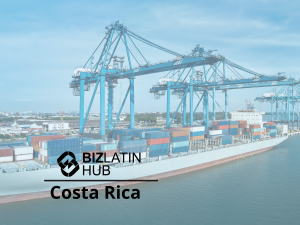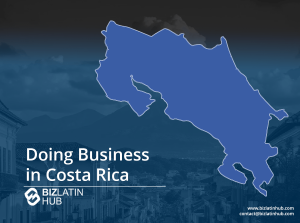Costa Rica is a great country to expand your business to. Not only is it one of the fastest growing economies in Latin America, but it is also home to a world of investment opportunities in a vast array of sectors ranging from the traditional coffee production to high-tech regional and international exportation. A statistic worth boasting is its sustained positive growth for the past 5 years, averaging above 3% annual GDP growth over the period.
However, like any other country, it is necessary to be informed and have some prior knowledge about the market and its institutions in order to be able to navigate the early stages of operation as smoothly as possible. In this article, we give 5 essential tips to help you sail through starting a business in Costa Rica.
Doing Business in Costa Rica – Prepare for bureaucracy
Costa Rica is a nation full of public institutions asking for a lot of documents before granting certificates or permits for specific activities. The number of requirements varies, sometimes a lot, according to the type of business you are conducting, as does the time needed to obtain them. Public employees are strict regarding certificate and permit qualifications, often rejecting applications not correctly filled out or lacking in some document or information they deem necessary – so is the bureaucracy of the country.
One sure way to sidestep going back and forth between institutions and denials is to be previously informed. Government websites and phone lines can offer a lot of information on requirements for the necessary processes you may need. Collecting all the files and confirming via phone or web chats will save you a lot of time in queues and rejections.
Get a digital signature

Costa Rica´s government has pushed greatly for the digitization of processes and documents, and have implemented such processes into the wider society for several years now; going as far as making some official procedures accessible only by digital means. Actions such as health registrations and invoicing, by law, require digital platforms. One of the common requirements needed for this kind of processes is the Digital Signature. A digital signature is issued by a Certificate Authority that, by means of an algorithm, allows for the precise identification of an individual.
In Costa Rica, because of the security issue of identification, Digital Signatures are only granted to citizens; they are provided by the Central Bank and other public and private banks.
Be sure to get a Digital Signature from your country or hire a local team to help you with the processes requiring a Digital Signature.
Be patient, friendly and thankful public employees
Public employers in Costa Rica can, at times like anywhere else, have extremely stressed employees with more tasks than time to complete them – this sometimes results in what may seem like unpleasant treatment. While this may sound disheartening, there are a lot of friendly civic servants and having patience and understanding in your process will go a long way.
When you start with an application, ask for information or simply sound out the proceedings, start from scratch even if you already know a little – it always makes sense to allow any public officials to re-explain the processes to you in their own words, so as to gain full understand of exactly what needs to be done.
The key is to never stop being friendly: persistent friendliness will go a long way to winning anyone over.
Work with a local partner
By having support from a local team to help you set up your business, you will avoid wasting time and money on unnecessary documents, queues, and ‘lost in translation‘ moments.
Accounting and tax filing will always be confusing for someone without the knowledge to do so and, even so, not being familiar with local tax laws can land you a very hefty fine or even jail time for tax evasion.
Hiring a local accountant that understands Costa Rican fiscal laws and its changes can help you save a lot of money in the long run, even more so if they are bilingual and can help you better understand the country
Be diligent
Make sure to always comply with local regulations, especially on matters Costa Rican takes seriously, such as labor laws. Costa Rican judges always lean towards the employee´s side if there is not enough backup information available; always keep a record and be certain you are doing and paying what you must.
You can get in trouble with the local tax authorities if you are not diligent with your archives and declarations. Make sure to remember important dates, amounts and any other tax information you may need for your business.
Bonus tip: you can get a resident visa by incorporating your company and then registering yourself as an employee of that company. Start as soon as the company is registered as it sometimes takes more than 6 months to get a reply from the Migration offices.
Next Steps
Costa Rica is a country full of opportunities for willing, foreign investors and following this useful set of tips aid your entry into doing business in the Central American jurisdiction. With the government, along with other institutions such as CINDE, promoting Foreign Direct Investment (FDI), the country has done wonders to make its way up the lists of best places to conduct business and open new companies. Professionally speaking, given the current political climate and current Costa Rican growth, the time couldn’t be better to look towards the region as an attractive destination to begin operations.
Be certain to make the best decisions for your endeavors by having a well-qualified, local support team. Contact us now, or visit our website at bizlatinhub.com to see how we can help you and your business.





